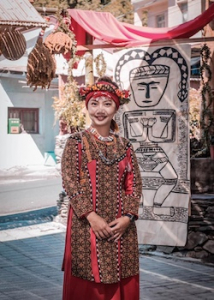
A new study by researchers from the University of Hawaiʻi at Mānoa examines how Indigenous communities define elderhood, and how this role supports healthy aging. Led by Yu-Chi Kalesekes Huang and Kathryn Braun of the Thompson School of Social Work & Public Health , the research reviews 20 scholarly publications to shed light on how elders contribute to the well-being of their communities.
Elderhood as a cultural role
The study looks at a range of Indigenous populations, including Inuit, Métis, and First Nations in Canada; Alaska Natives, Native Hawaiians, Samoans, Tongans and Native Americans in the U.S.; Māori in New Zealand; Aboriginal and Torres Strait Islanders in Australia; and the Aymara tribe in Chile.

Published in the International Journal of Environmental Research and Public Health , the study identifies six common themes across cultures, finding that an elder is someone who:
- Is respected for living, knowing and teaching traditional knowledge
- Is committed to passing down wisdom to younger generations
- Continues contributing to the community
- Provides a vision for the future rooted in tradition
- Is not necessarily defined by age
- Acts as a care provider
These findings highlight that elderhood is a respected status earned through cultural stewardship, community service and wisdom, rather than age alone. Supporting individuals in attaining this role can promote healthier aging and enhance community resilience.
"We believe the important contribution of this research lies in emphasizing the key role of Indigenous elders in tribes and communities," said Huang. "For Indigenous peoples, the title of 'elder' is earned by playing a continuous role in preserving cultural traditions and enhancing community resilience, which brings benefits to the overall health and well-being of the community. If an older person earns the title of elder, they are seen as having aged successfully and embody the principles of healthy aging."
The study calls on policymakers and community leaders to embrace culturally grounded approaches that honor the vital role of elders in strengthening the health and resilience of Indigenous communities.
The post Indigenous views of elderhood offer lessons on aging first appeared on University of Hawaiʻi System News .






